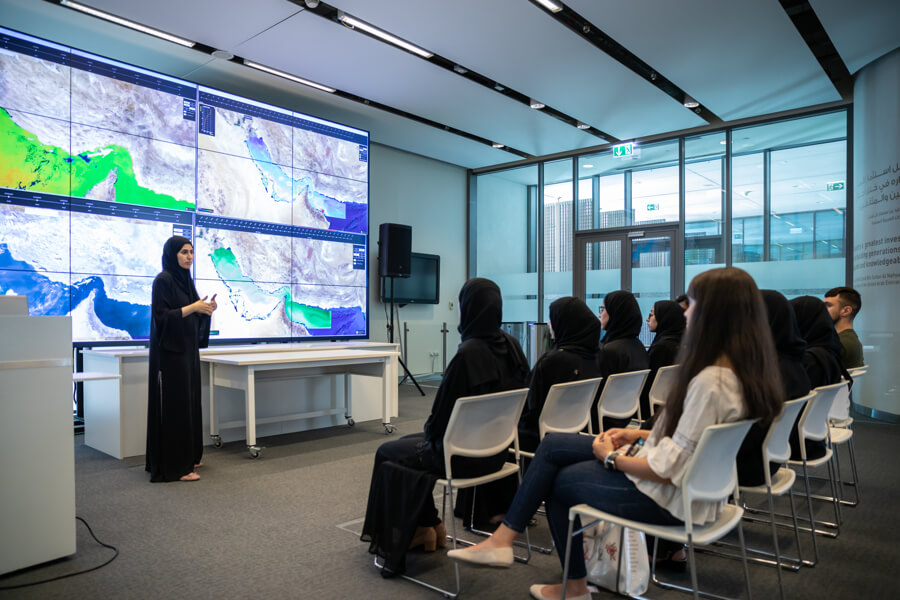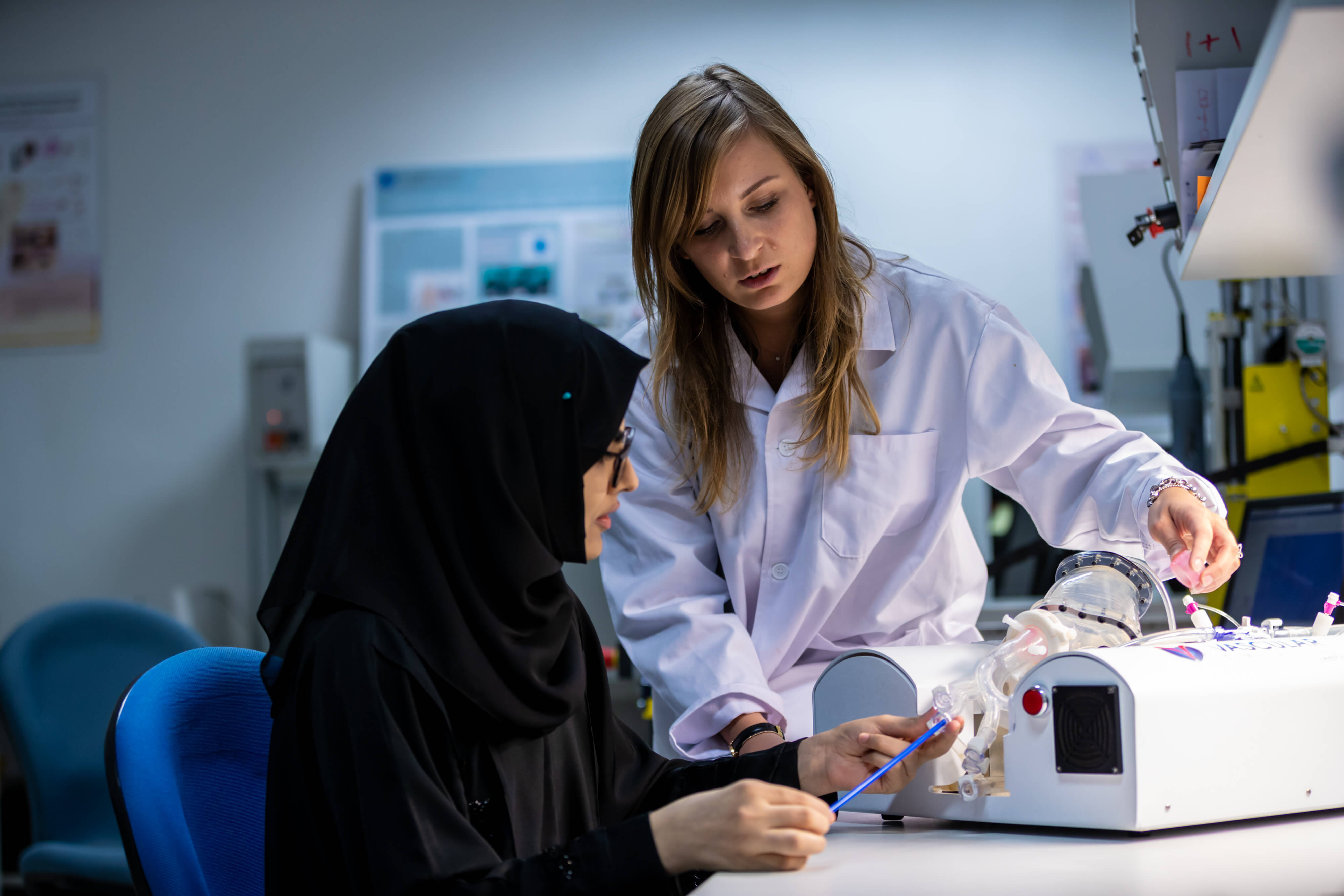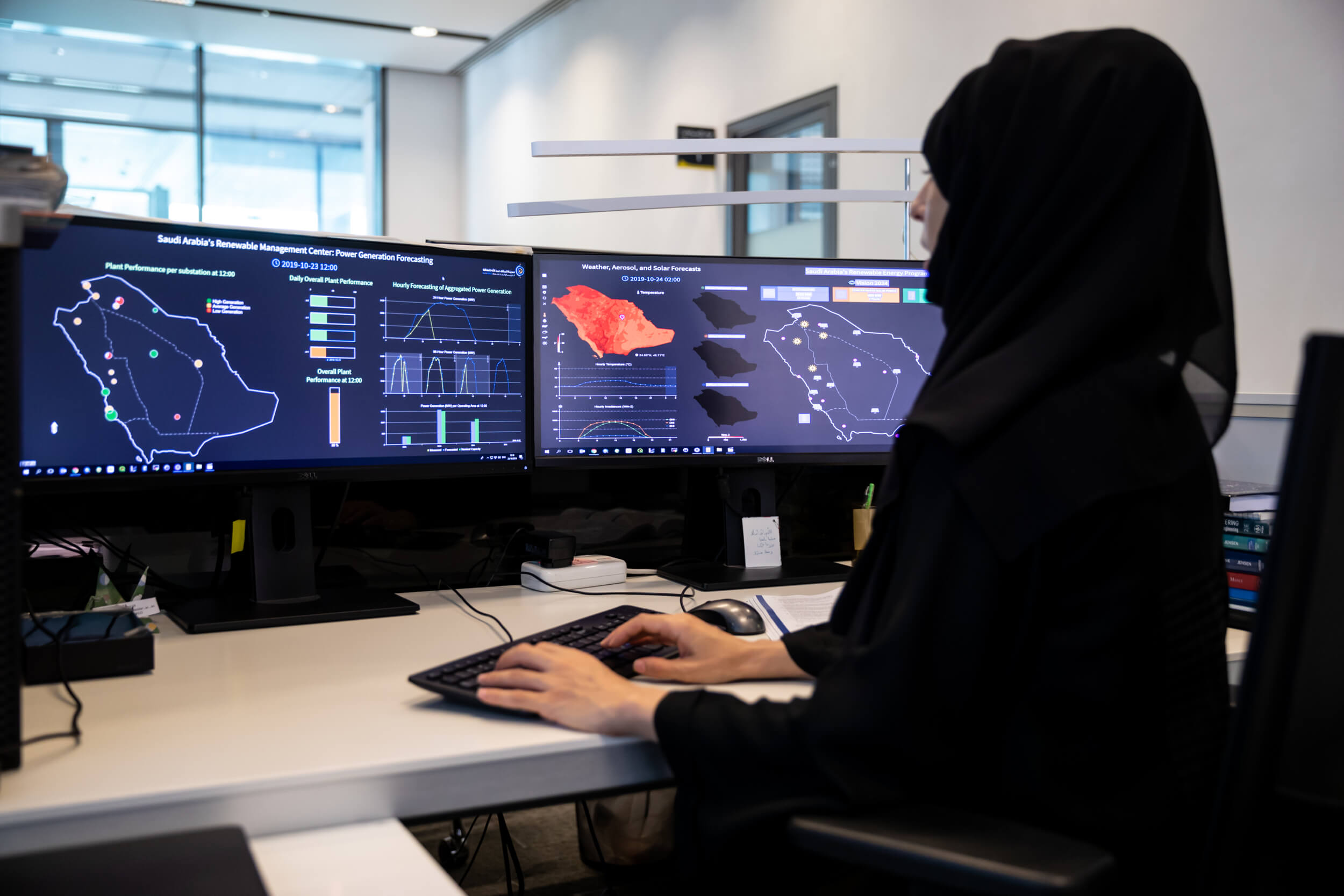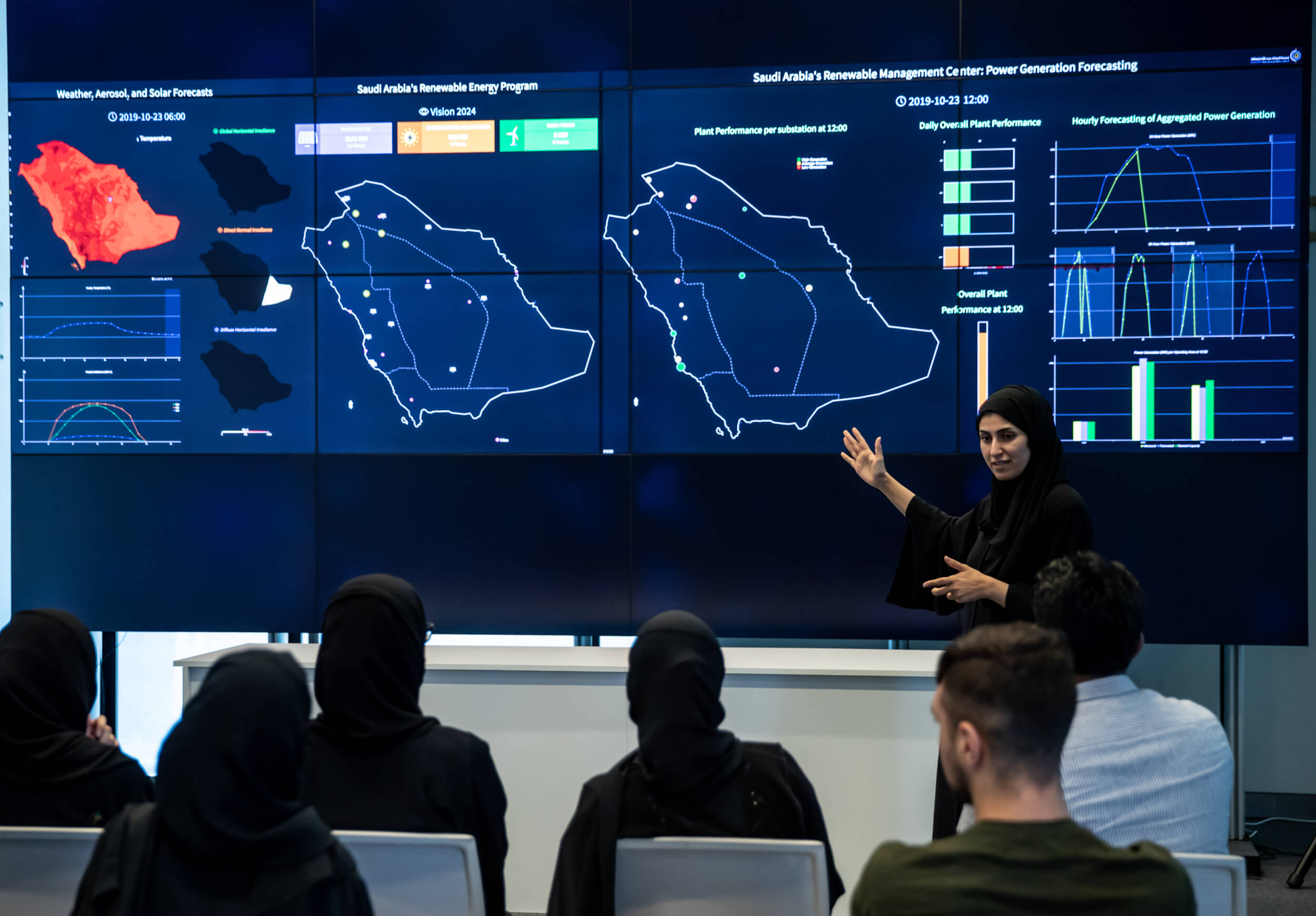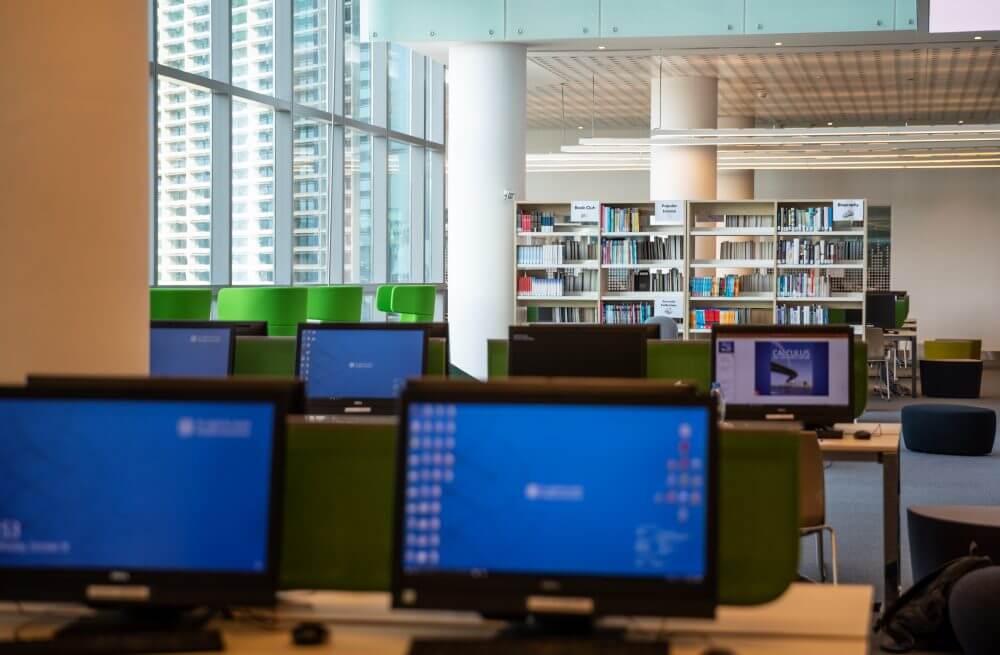Collaboration Projects with Industry, Institutional and Government Partners Exemplify Masdar Institute’s Commitment to Furthering Clean Energy
Abu Dhabi-UAE: 26 May, 2012 – Stakeholders including academic and research colleagues, industry partners, sponsors and contributors are unanimous in their acknowledgement about one aspect of Masdar Institute of Science and Technology – the research-based institution consistently receives acclaim and recognitions from international and regional organizations for outstanding contributions towards academic, research and human capital development.
The independent research-oriented institution focused on advanced technologies and sustainability has achieved this feat by focusing on the continued development of partnerships and collaborative ventures that bring direct benefits to stakeholders.
Some of the local and international organizations currently partnering with Masdar Institute include Emirates Aluminium (EMAL), Tabreed, Mubadala Aerospace, Siemens AG, Masdar PV, Toyota Motor Corporation, The Boeing Co., Honeywell UOP, Etihad Airways, Advanced Technology Investment Company (ATIC), Dubai Supreme Council of Energy, Environment Agency Abu Dhabi, the International Renewable Energy Agency (IRENA) and the World Energy Council (WEC).
Dr Fred Moavenzadeh, President of Masdar Institute, said: “A key element that underscores our success in collaborations is the unique regional capability in advanced research and development that we offer our partners. As we expand our research focus to more specialized areas in advanced technology, we will continue to provide our stakeholders with our expertise for the advancement of clean and sustainable technologies. Our partners also need to be commended for creating these research opportunities for us to work together towards leading-edge innovations. We thank the country’s wise leadership for their vision in building an institution that effectively contributes to the UAE’s academic, research and human capital development efforts.”
Masdar Institute’s research cooperation agreement with EMAL is a striking example ofa partnership that reiterates academic-industry collaboration.
Saeed Fadhel Al Mazrooei, President and CEO of EMAL, said: “The Master Research Agreement has already initiated and executed opportunities for value-adding research projects. and EMAL is keen to assess its tangible benefits upon completion of the projects. This is also part of EMAL’s strategic plan that incorporates the broader Vision 2030 of Abu Dhabi.”
Currently EMAL has four research projects with Masdar Institute including exploring activation water treatment to limit the growth of green algae and other pathogens that promote algae growth, efficient cooling for pot shut down, on-site assessments of a reverberatory aluminium melting furnace, and voltage drop study across the anode-rod connection.
The World Energy Council is a global and inclusive forum for thought-leadership and tangible engagement committed to sustainable energy future. Founded in 1923, it is mandated to promote the sustainable supply and use of energy, sharing common objectives with Masdar Institute.
Dr Christoph Frei, Secretary-General of the World Energy Council, said: “The Masdar vision has been an inspiration to many of us and we welcome the Masdar Institute’s significant contribution as an innovation catalyst in furthering clean energy and advanced technologies through partnerships with industry leaders. The Masdar Institute can play an important role in the further development of community-supported energy solutions, which will be the key to unlock the potential of energy efficiency and distributed energy.”
As an organization that is marking its anchor presence in Masdar City, Siemens is collaborating with Masdar Institute under a framework agreement that has provisions for both education and research. The research and development aspect of the Siemens partnership consists of programs for Smart Grid, Smart Buildings, and Carbon Capture and Storage (CCS). Siemens is also providing scholarships and funding for research equipment that will benefit educational programs for the advancement of knowledge economy in the UAE.
While the first CCS research collaboration project has been successfully completed, the collaboration continues with a second project that started in December 2011 and focuses on the evaluation of CO2 capture process waste reuse and recycling in the UAE.
For Siemens, the partnership was also an opportunity to tap into the abundant wealth of creativity at Masdar Institute, especially in solar energy research and development to achieve cost effective solar photovoltaic (PV) energy in the Middle East region.
Adrian Wood, Regional Director – Solar and Hydro, Middle East, Siemens, said: “The Middle East region has proprietary demands on the technology used. For Siemens it is a great benefit to tap into the know-how of the Masdar Institute with its significant background of PV panel testing in the UAE. The multi-disciplinary staff of the Institute generates new and out-of-the-box ideas that lead to completely new approaches. We look forward to jointly identifying ways to further enhance the use of PV panels in the Middle East region.”
The partnership with Masdar Institute has proved worthwhile for Siemens, which predicts that the performance of solar panels could be optimized through a new coating technology that helps prevent performance-degrading dust accumulation.
Oliver Hennig – Head of Solution Design (PV), Siemens AG, Germany, said: “One of the biggest challenges of the coatings is to match the expected lifetime and cost per coated area. We are confident that we will find a coating technology that will further optimise the performance / cleaning of PV panels in the Middle East.”
The research-based institution’s commitment to solar energy is further exemplified by its partnership agreement with Masdar PV. Projects have been progressing satisfactorily following a strategic master research partnership signed in January earlier this year.
Dr. Andreas Heidelberg, Manager-Process Integration, Masdar PV, said: “The strategic master research partnership with Masdar Institute has begun yielding dividends asall three projects have kicked-off and in all areas first results have been achieved. The three areas – transparent conductive oxide (TCO) optimization, photovoltaic device simulation and light management optimization – hold the key to realizing Masdar PV’s efficiency roadmap.”
The Abu Dhabi-headquartered International Renewable Energy Agency (IRENA) is collaborating with Masdar Institute to develop and advance a publicly-accessible atlas of solar and wind resources. In addition, about 20 IRENA scholars have been admitted to Masdar Institute in September 2011 as part of the joint IRENA-Masdar Institute scholarship program. The program aims to support innovative research opportunities for students, opening high-level communication channels between local and global energy policy-makers and highly-accomplished individuals from various regions of the world. In addition to regular academic requirements, IRENA scholars participate in an exclusive Lecture Program that provides the latest developments in the field of renewable energies in the UAE and worldwide.
Masdar Institute’s partnership with IRENA took a whole new dimension following agreements with the UAE Directorate of Energy and Climate Change; Dubai Supreme Council of Energy; and Environment Agency of Abu Dhabi for the launch of the UAE Research Center for Renewable Energy Mapping and Assessment. The Center aims to develop regional knowledge and leadership in renewable energy assessment and mapping for the Arabian Peninsula and countries with similar environmental conditions, mainly in Africa. This follows the UAE’s support of IRENA in its advancement of a publicly-accessible atlas of solar and wind resources, particularly for developing countries.
On human capital development, Masdar Institute has taken the lead with four other higher learning institutions to launch the University Leadership Council, a platform for academic leaders to share creative ideas, foster common interests and spearhead new initiatives for R&D, innovation and technology transfer in the region.
Wyatt R Hume, Provost, UAE University, aptly describes the role of Masdar Institute in the University Leadership Council initiatives. Hume says: “Masdar Institute has been a creative and energetic partner in our mutual efforts to develop a high level of research capability, and therefore to develop skills and abilities among young UAE nationals.”
Established as an on-going collaboration with the Massachusetts Institute of Technology (MIT), Masdar Institute integrates theory and practice to incubate a culture of innovation and entrepreneurship, working to develop the critical thinkers and leaders of tomorrow. With its world-class faculty and top-tier students, the Institute is committed to finding solutions to the challenges of clean energy and climate change through education and research.


